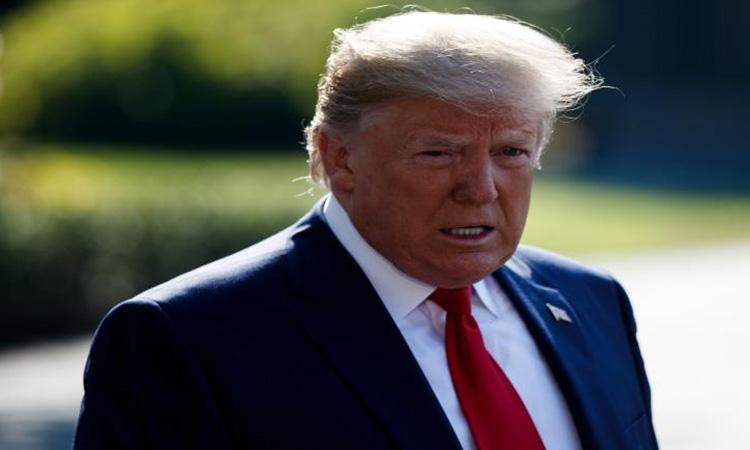Judge Arthur Engoron, presiding over the $250 million civil fraud case involving former US President Donald Trump, decisively dismissed a motion for a mistrial on Friday. In a resolute response, Judge Engoron characterized the defense's plea as "utterly without merit," stating that endorsing such a motion would be futile.
This refusal marks a setback for Trump, compounded by the emergence of leaked tapes featuring his co-defendants discussing racketeering charges related to election subversion in Georgia. The rejection of the mistrial plea and the leaked recordings pose a dual challenge for the former president.
Trump, alongside his adult sons Donald Trump Jr. and Eric Trump, the Trump Organization, and its top executives, had asserted that the case suffered from political bias. They alleged that Judge Engoron and his law clerk had "tainted the proceedings" and contended that the evidence against them was "tangible and overwhelming."
In their 30-page dismissal motion, the defense focused on what they deemed "disparaging" news stories from outlets like NPR and The New York Times, where Judge Engoron had shared in his high school alumni newsletter. They also highlighted his political contributions to Democratic groups, branding them as "partisan activities." The motion included photos of Judge Engoron and his clerk seated together, accusing them of "co-judging" the case. Judge Engoron dismissed these arguments as "nonsensical."
Last month, Engoron imposed a partial gag order on Trump after he posted a photo of the judge's law clerk, alongside Senate Majority Leader Chuck Schumer, referring to her as “Schumer’s girlfriend.” This order restricted Trump, his defense team, and the prosecution team from making public statements about his staff.
Having already fined Trump twice for breaking the gag order, Engoron ruled in a summary order that Trump and his sons were liable for fraud, leading to the cancellation of the Trump Organization's business certificates. The judge supported New York Attorney General Letitia James' allegations of Trump inflating his net worth and property values to secure loans at concessional rates.
Simultaneously, leaked recordings have surfaced, providing new insights into the Georgia racketeering case. These recordings feature statements from four of Trump's co-defendants who have entered plea bargains, potentially delivering damaging information against the former president. Former Trump attorneys Jenna Ellis, Sidney Powell, Kenneth Chesebro, and bail bondsman Scott Hall shared insights into their roles in a conspiracy aimed at overturning the 2020 presidential election results in Georgia.
The leaked interviews reveal potential trouble for Trump, with Powell stating that he sought legal advice from her because most White House aides advised him to concede the election. Ellis recounted a conversation with Dan Scavino, a former top White House aide, where he asserted that it didn't matter if Trump lost – they were not going anywhere.
These leaked revelations add a layer of complexity to Trump's legal battles, as they expose internal discussions and perspectives that could further impact the ongoing investigations. The combination of the mistrial rejection and leaked recordings amplifies the legal challenges faced by the former president and his co-defendants.
Also Read | Temporary Gag Order Lifted for Trump in Civil Fraud Trial by Judge


















